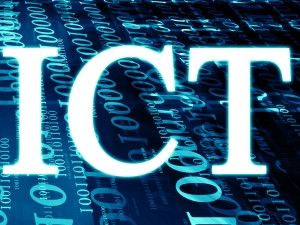
The Information and Communication Technology (ICT) Research, Development and Innovation (RDI) Roadmap, aimed at bolstering ICT research and development in SA, was approved during a Cabinet meeting last week.
The ICT RDI roadmap is a long-term investment by the Department of Science and Technology (DST), specifically developed to unlock the potential that ICT has for socio-economic development.
"Approval of the ICT RDI roadmap by Cabinet is an endorsement at the highest level in government of an ambitious plan to create digital advantage for SA. This is a big milestone for the DST and, as such, we are grateful and excited by the Cabinet's decision," says Isaac Maredi, chief director at Sector Innovation and Global Change in the department.
According to Maredi, ICT was identified as one of the key technology missions of the National R&D Strategy as having a pervasive impact on government service delivery in domains such as education, health and social facilities, as well as being a powerful driver of industrial and economic development and competitiveness. Following an extensive foresight exercise, the DST's ICT RDI strategy was developed and adopted in 2007.
"This strategy's major objectives are to promote focused world-class research, to create a strong and robust innovation chain, and to develop advanced human resource capacity," says Maredi.
Specific strategic plans are outlined in the roadmap to guide SA's investment in ICT RDI over the next decade. "This includes the roll-out of a long-term connect and engage strategy plan, designed to build and continuously strengthen SA's ICT RDI ecosystem and, thereby, increase presence in the global ICT ecosystem," says Maredi.
Investment in the roadmap is R9 billion over the next 10 years and is co-funded by other government departments, the private sector and other role players. "Government will be making substantial investments in ICT research and development as part of the roadmap, and we would like to see industry match government investment so that we can develop globally competitive products and services together," says Maredi.
Maredi adds that one of the DST's goals is to make SA an attractive ICT investment destination for multinational corporations. In this regard, the DST has entered into strategic partnerships with companies like Microsoft, Nokia and SAP.
"These companies are motivated to invest in SA to access new markets and to leverage unique R&D capability," says Maredi. "We are cognisant of the important role that these partnerships play in strengthening our RDI capability. In this regard, the DST is planning to organise a partner and investor workshop in the next few months as a way of taking this initiative forward."
Connectivity for schools
Cabinet also noted the cost-effective roll-out of broadband connectivity to 174 rural schools in Mpumalanga and Limpopo. The project, "Broadband for All/Wireless Mesh Network", was initiated in 2009 by the DST and CSIR Meraka Institute.
Funded by the European Union, with sector budget support managed by the DST, the project connected the 174 schools, nine circuit offices, two colleges, clinics and a number of other facilities. All the schools received a broadband connection through the wireless mesh network that allows for an uncapped amount of communications traffic to flow between the schools, circuit offices, and the Internet.
"The project is a large-scale demonstrator of the wireless mesh network technology for rural connectivity, which is deployed, supported and maintained by local entrepreneurs called Village Operators."
According to Maredi, some anecdotal evidence has been presented in terms of improved school performance, savings made due to more effective online communication between circuit management and the schools, and generally improved access to resources.
"One circuit manager even went as far as establishing an online system where the schools in the circuit are expected to submit reports and results online for regular review."
Following the project's success, the CSIR Meraka Institute is looking to replicate it in other parts of SA. "The institute is in the process of identifying technology transfer partners who can scale up and commercialise this concept, and invite anyone interested to contact the CSIR," says Maredi.
Share